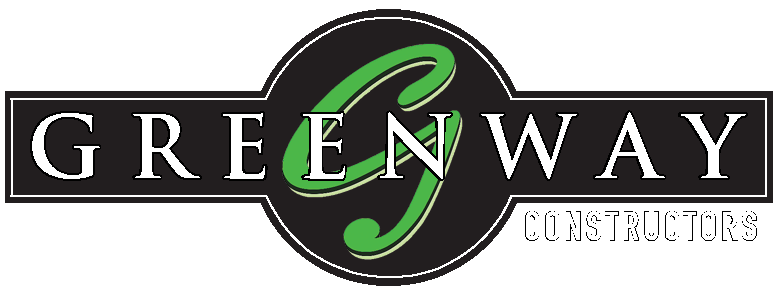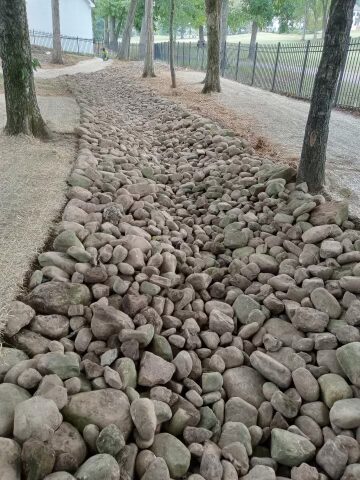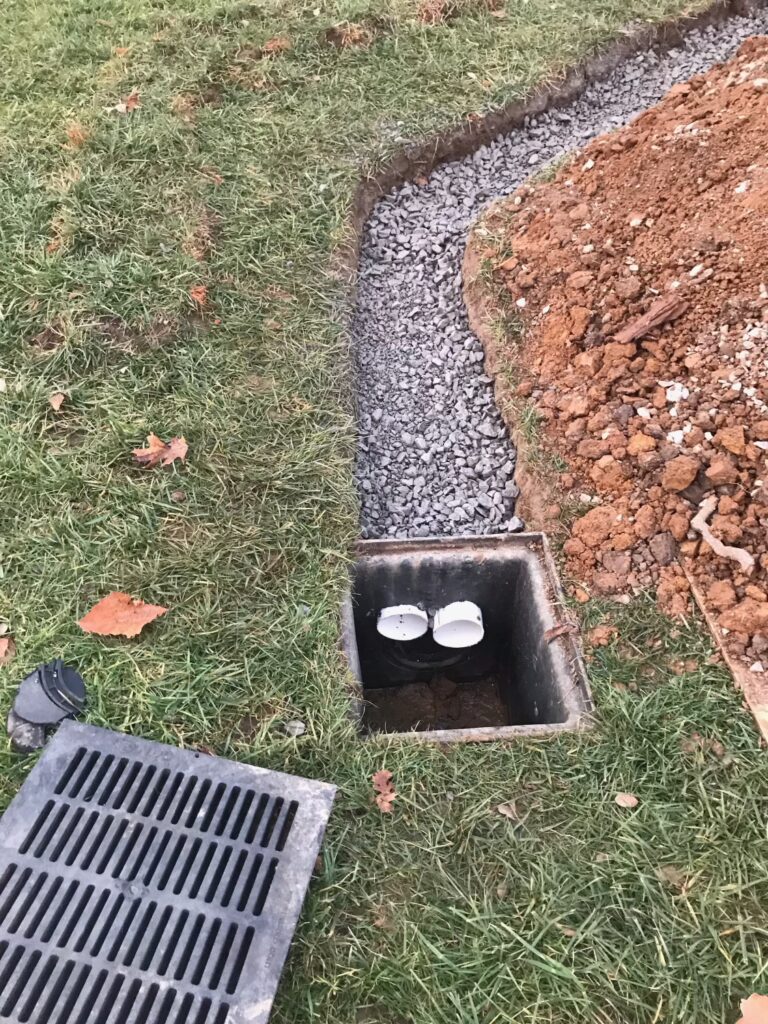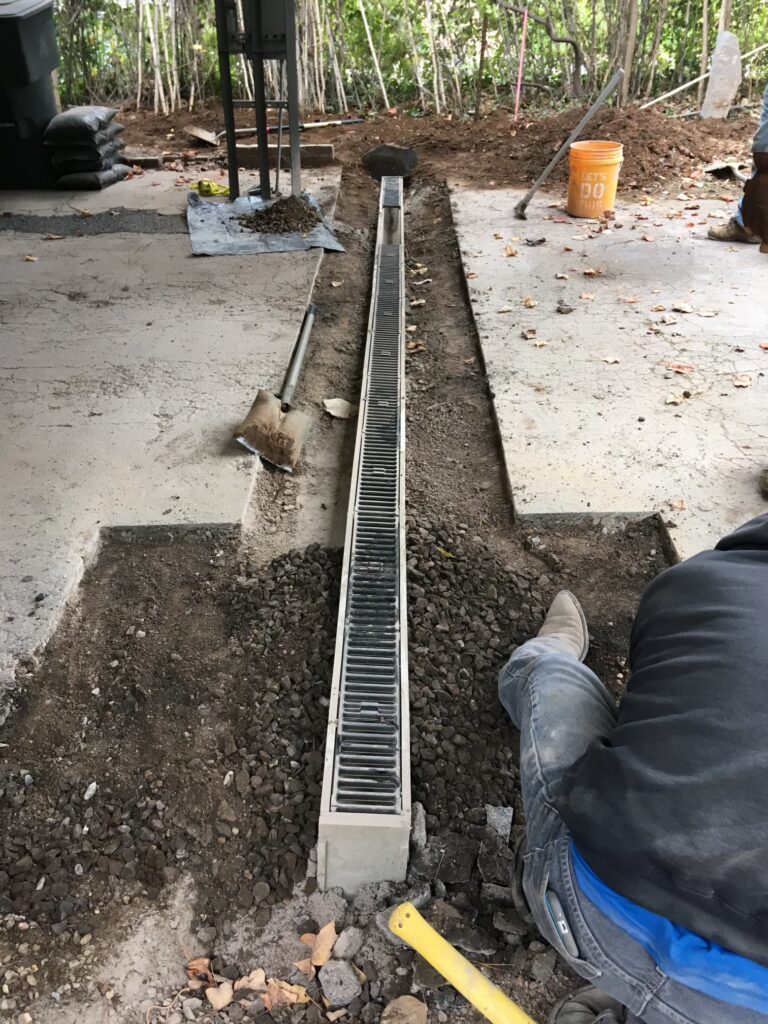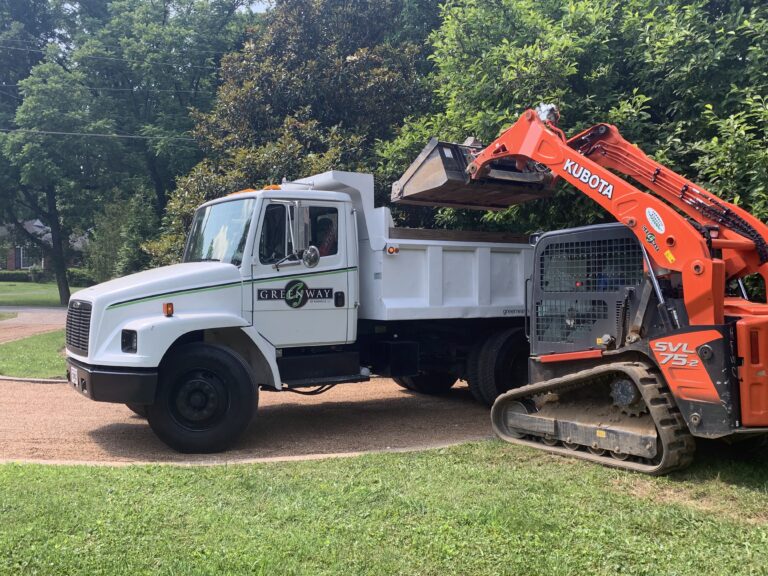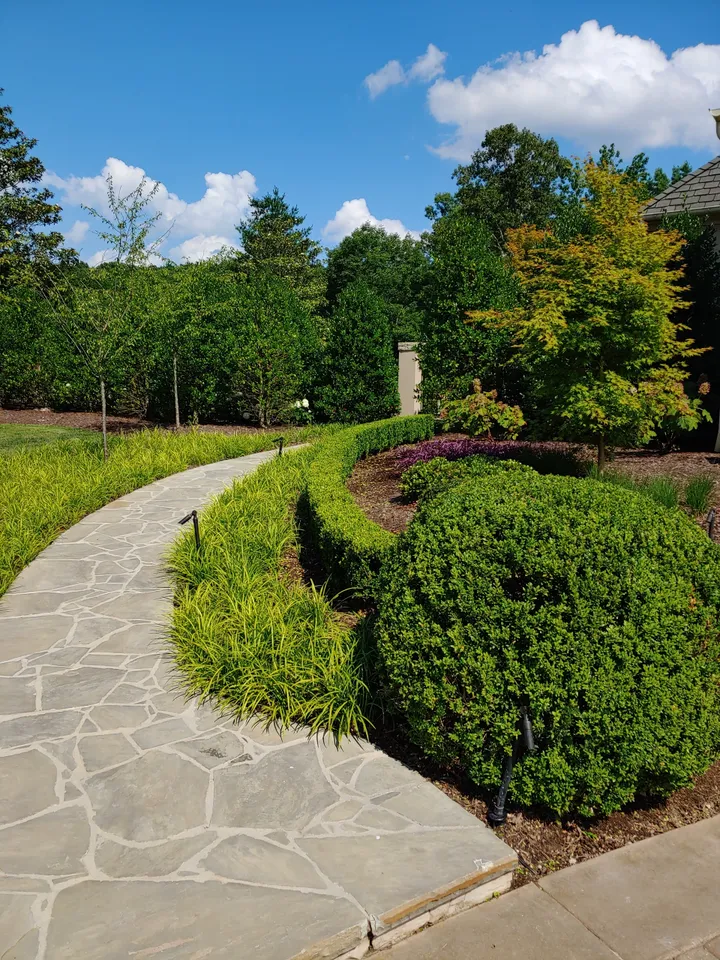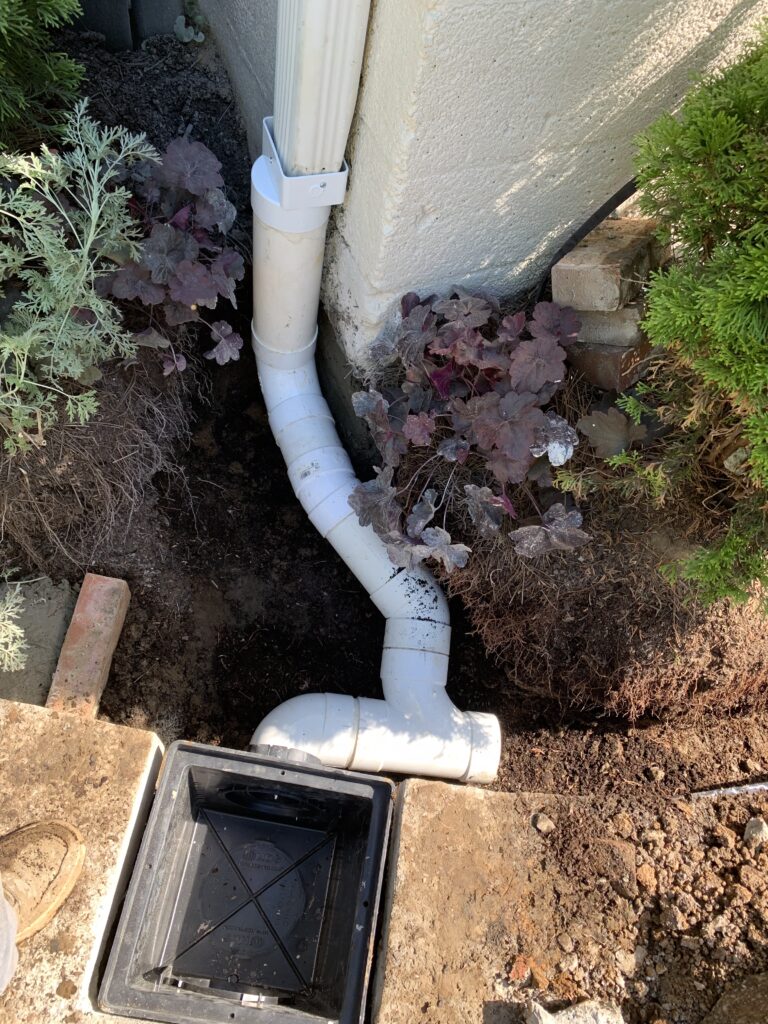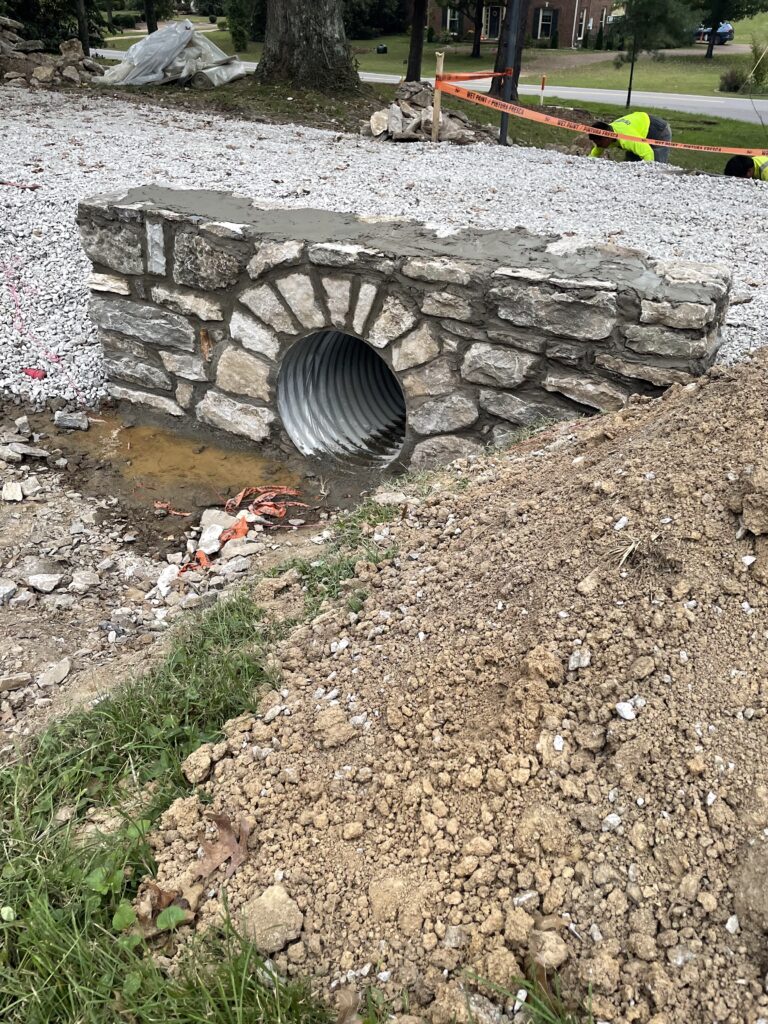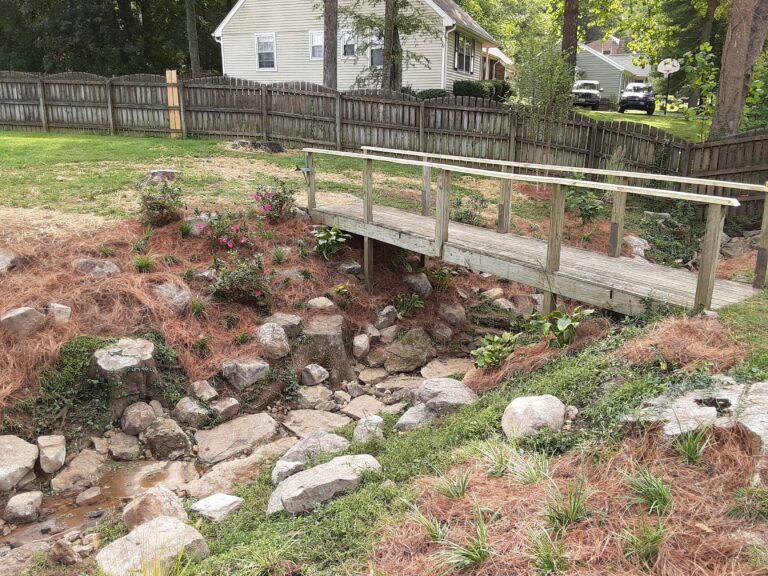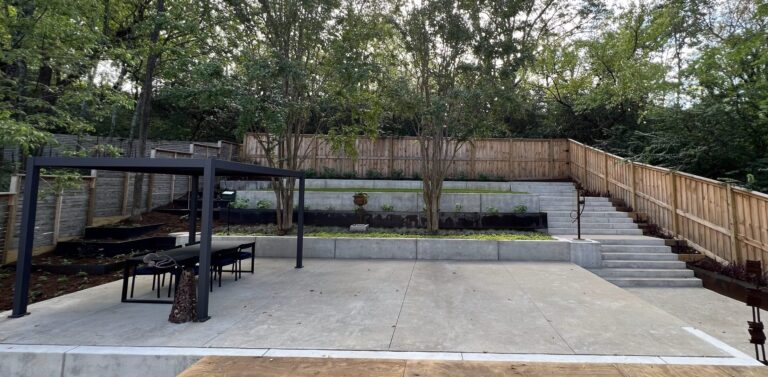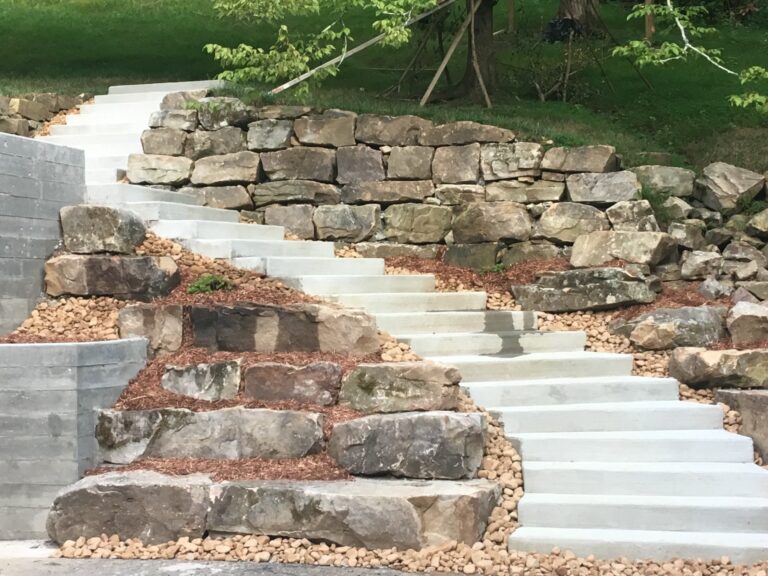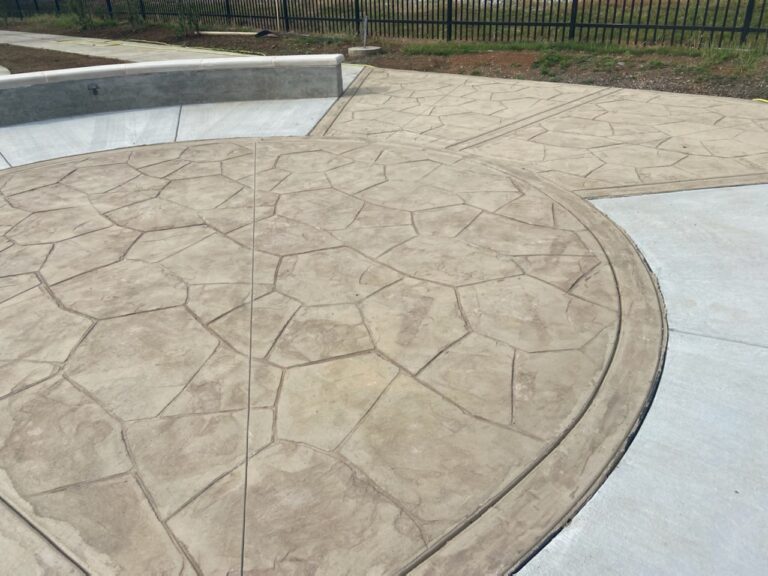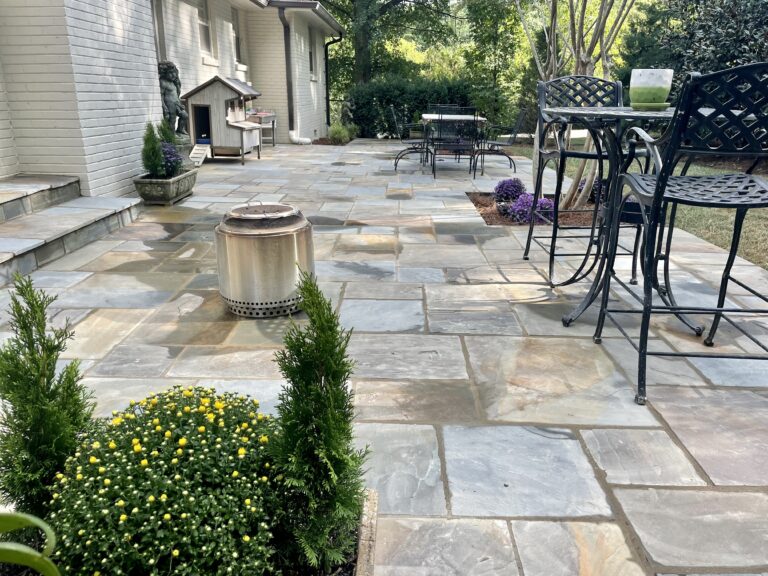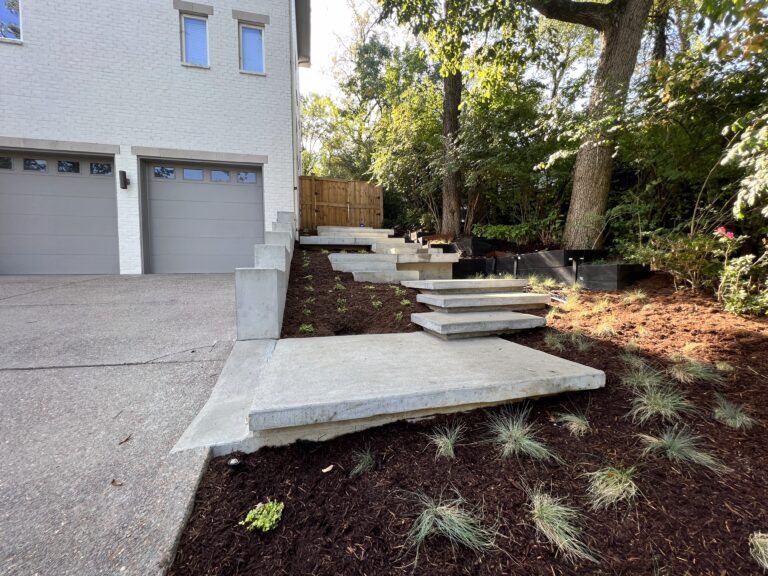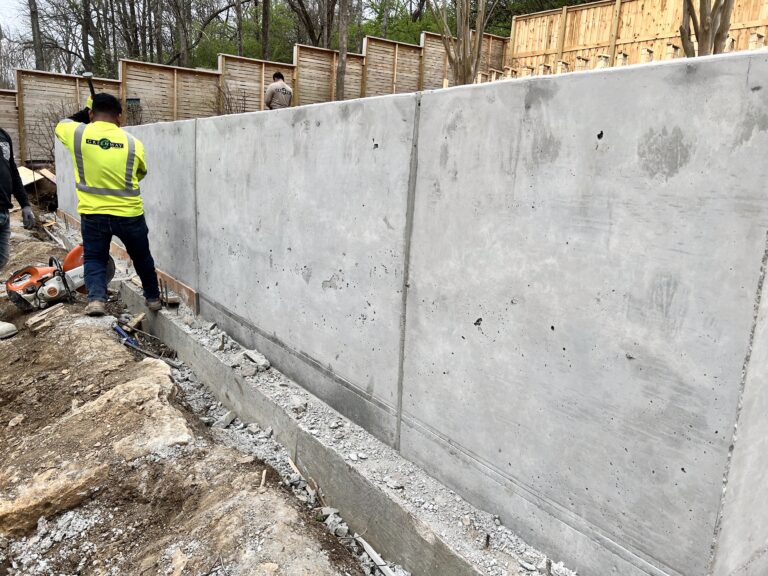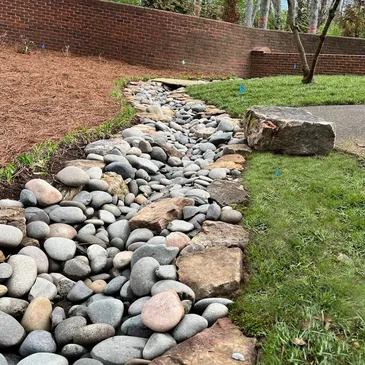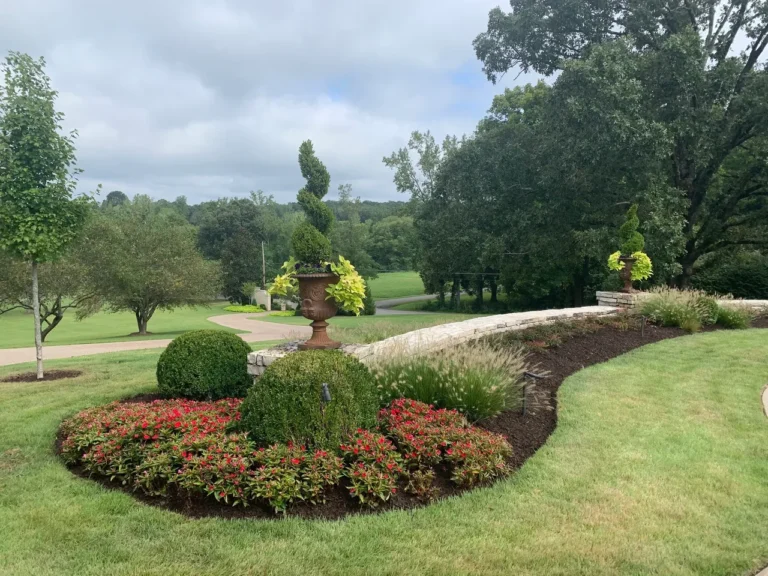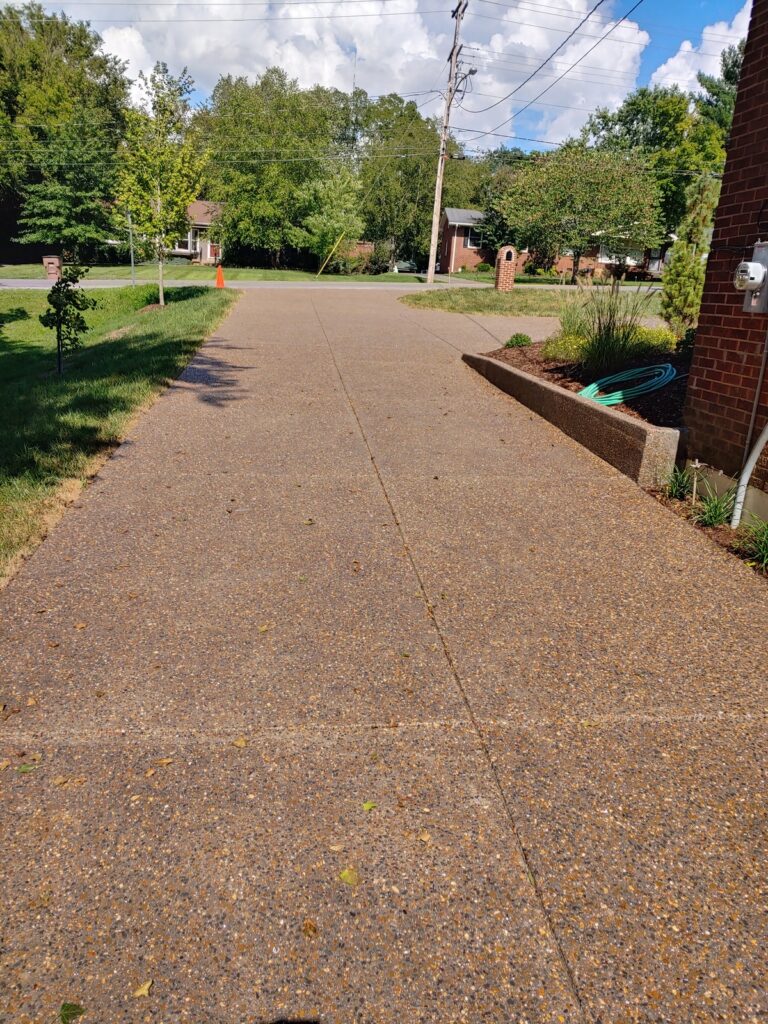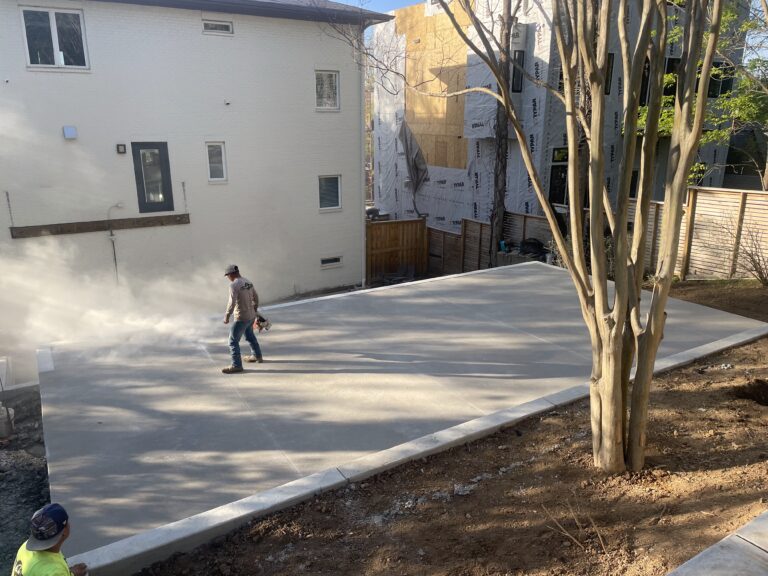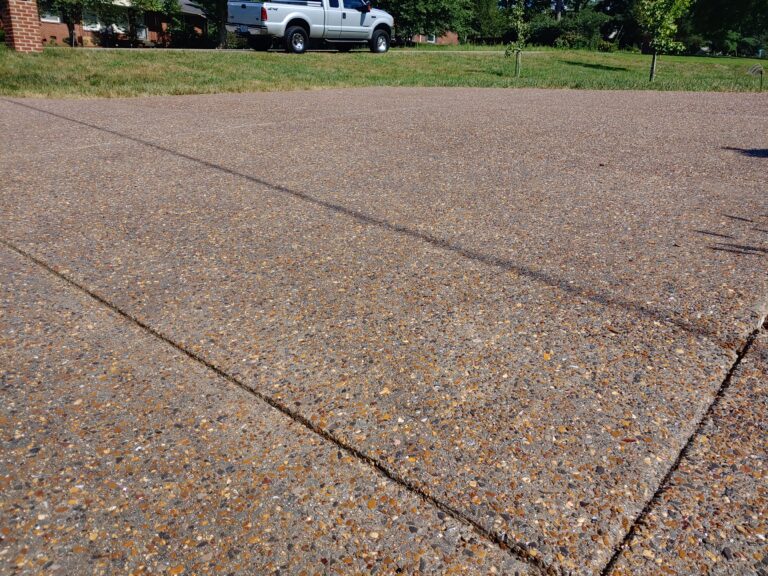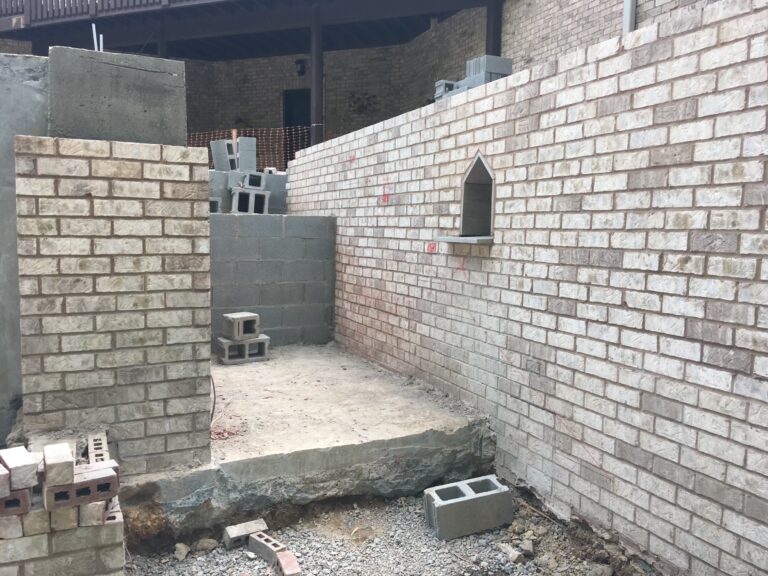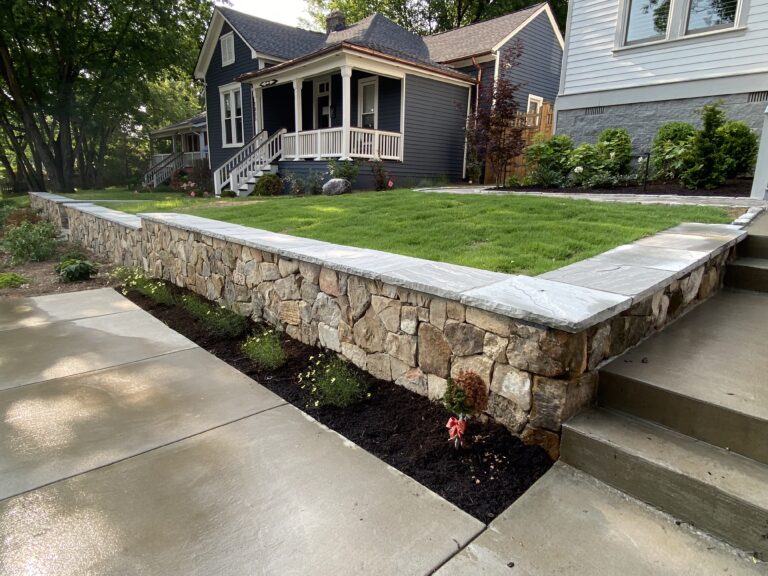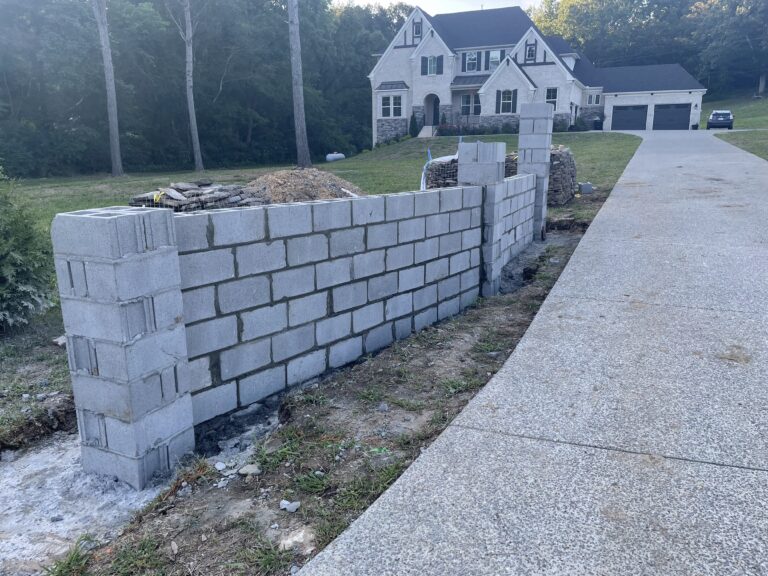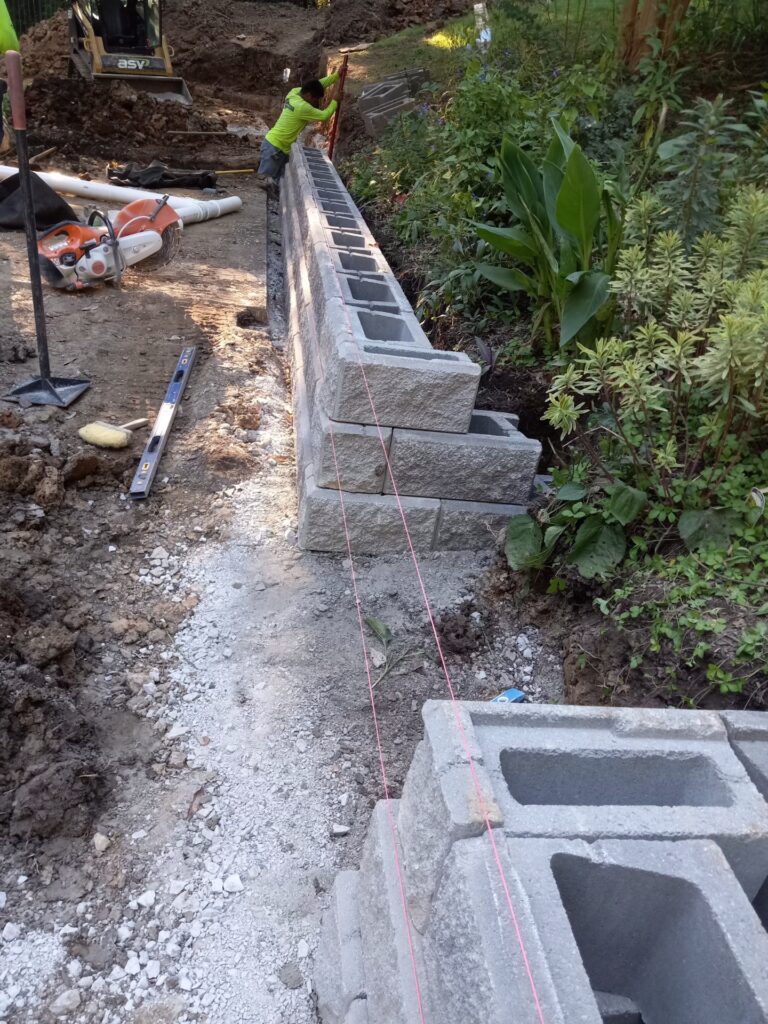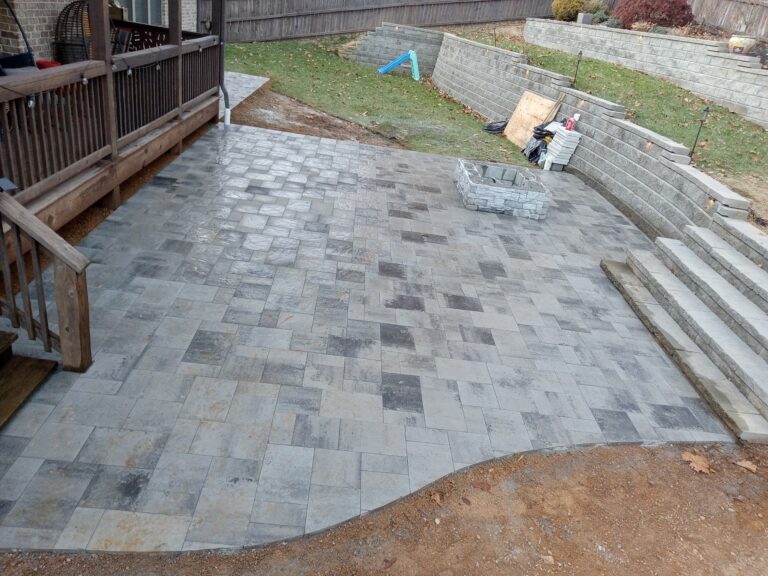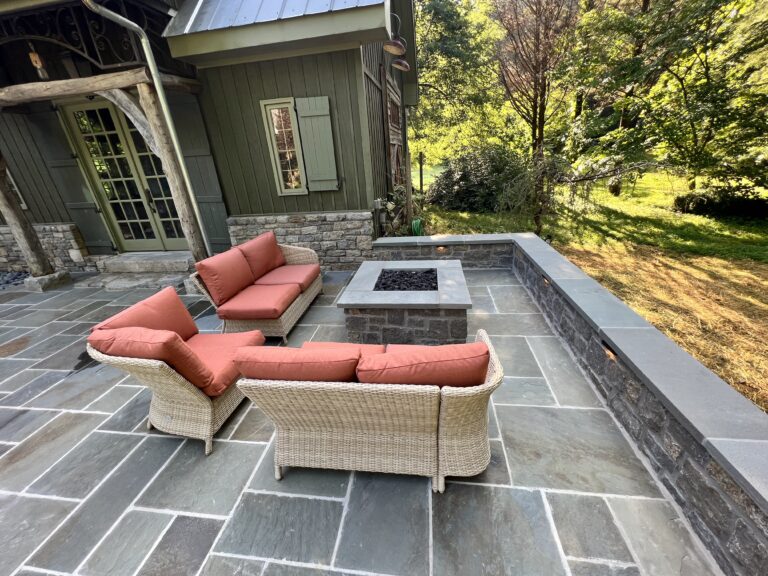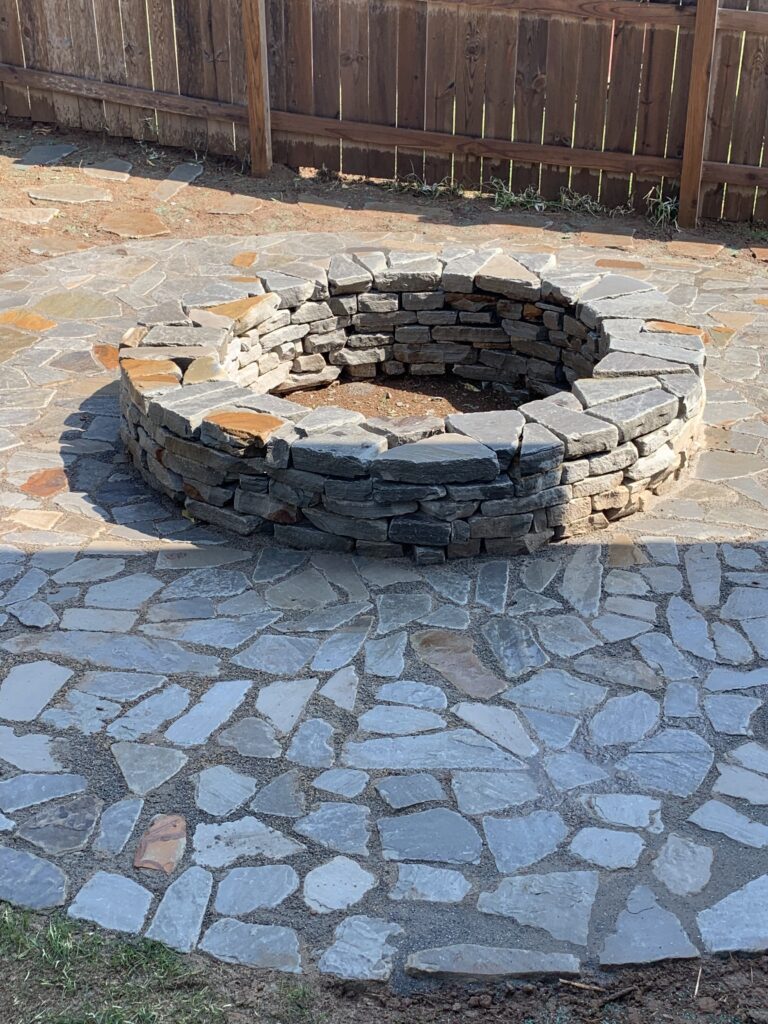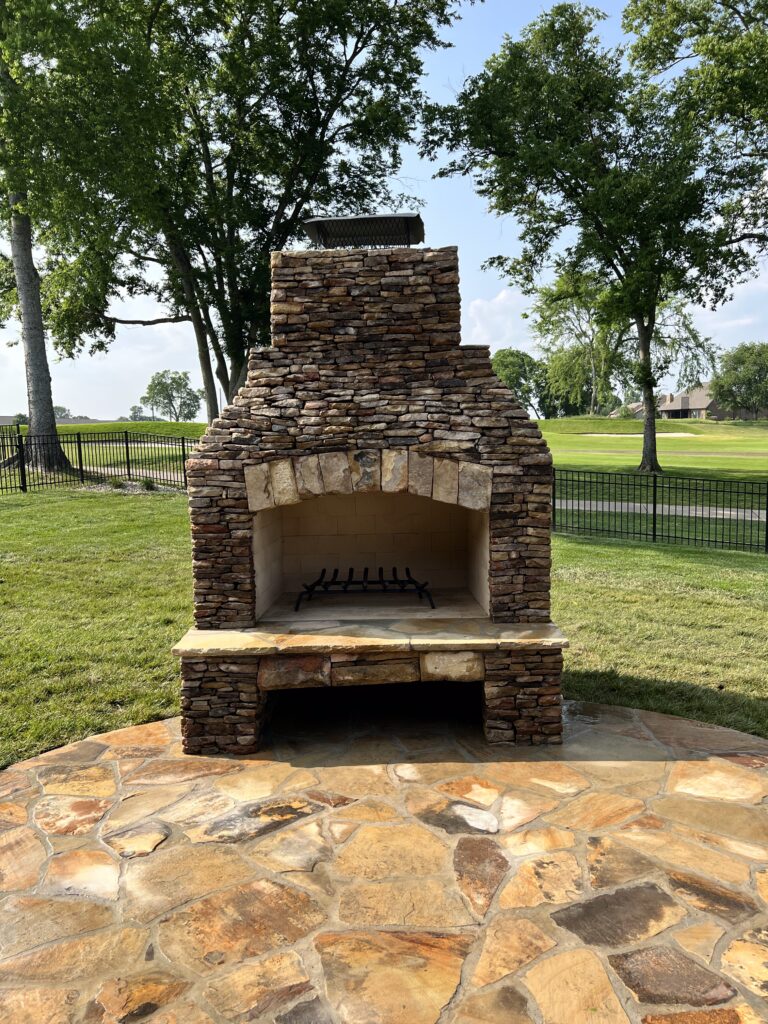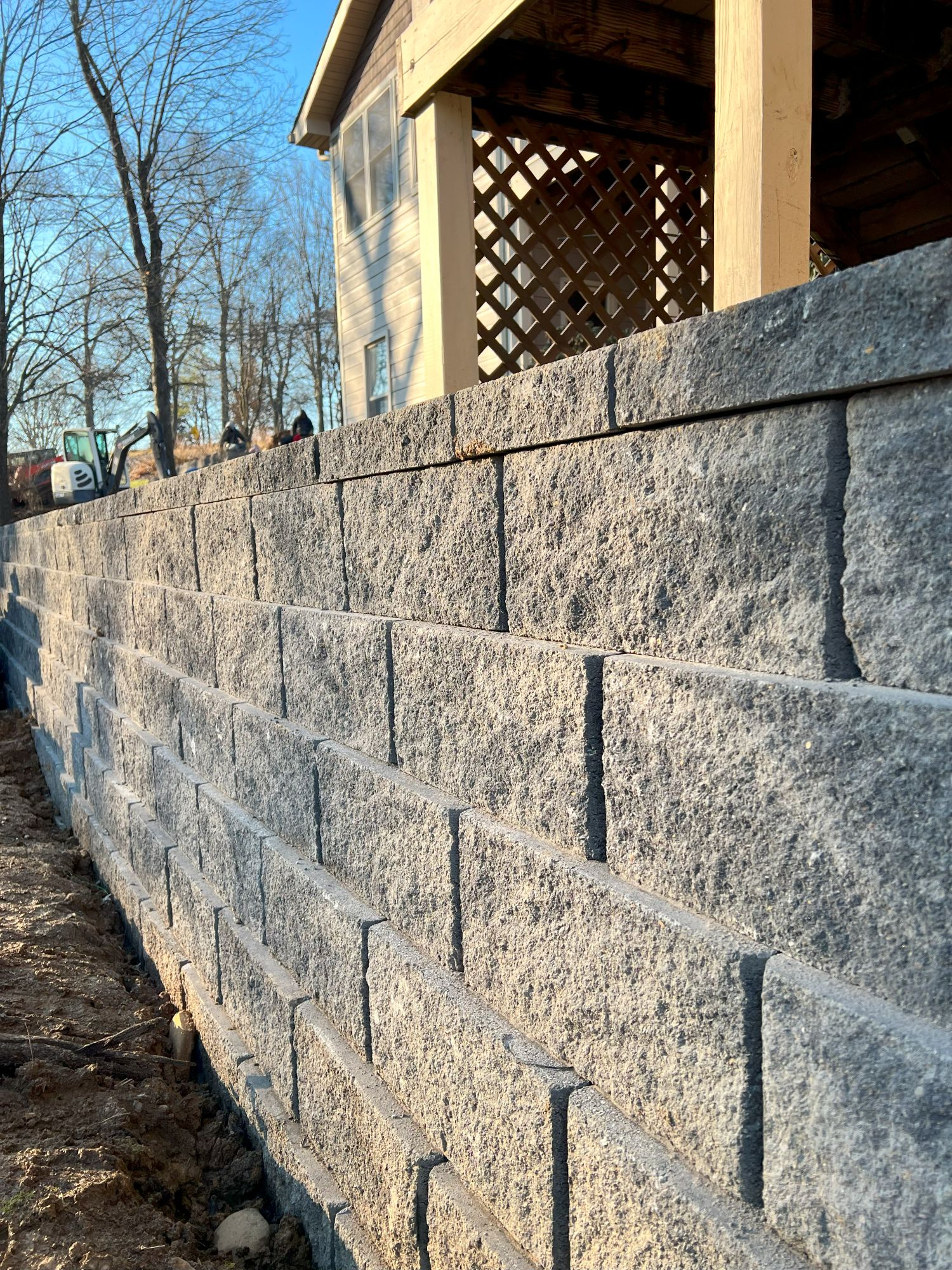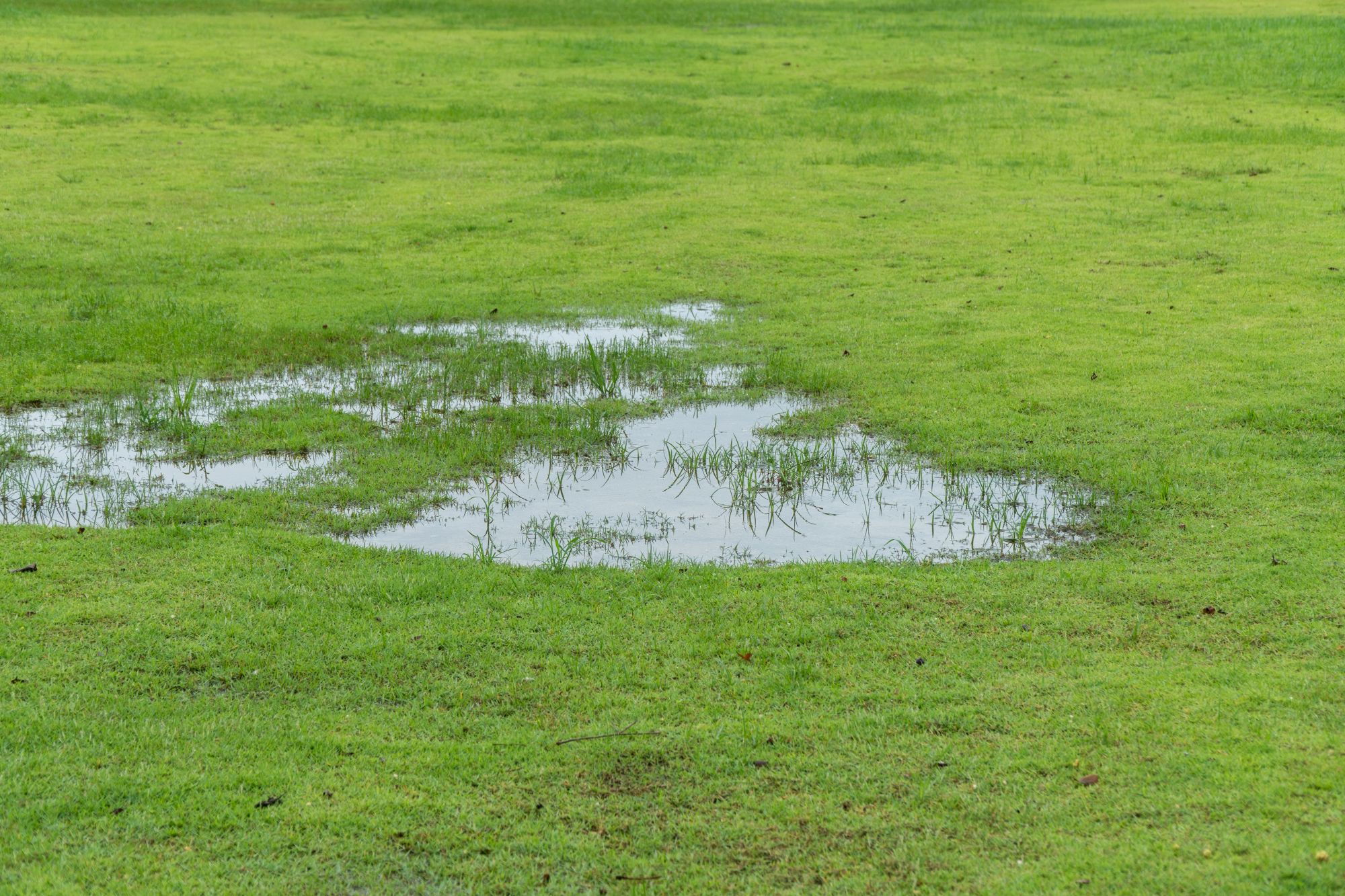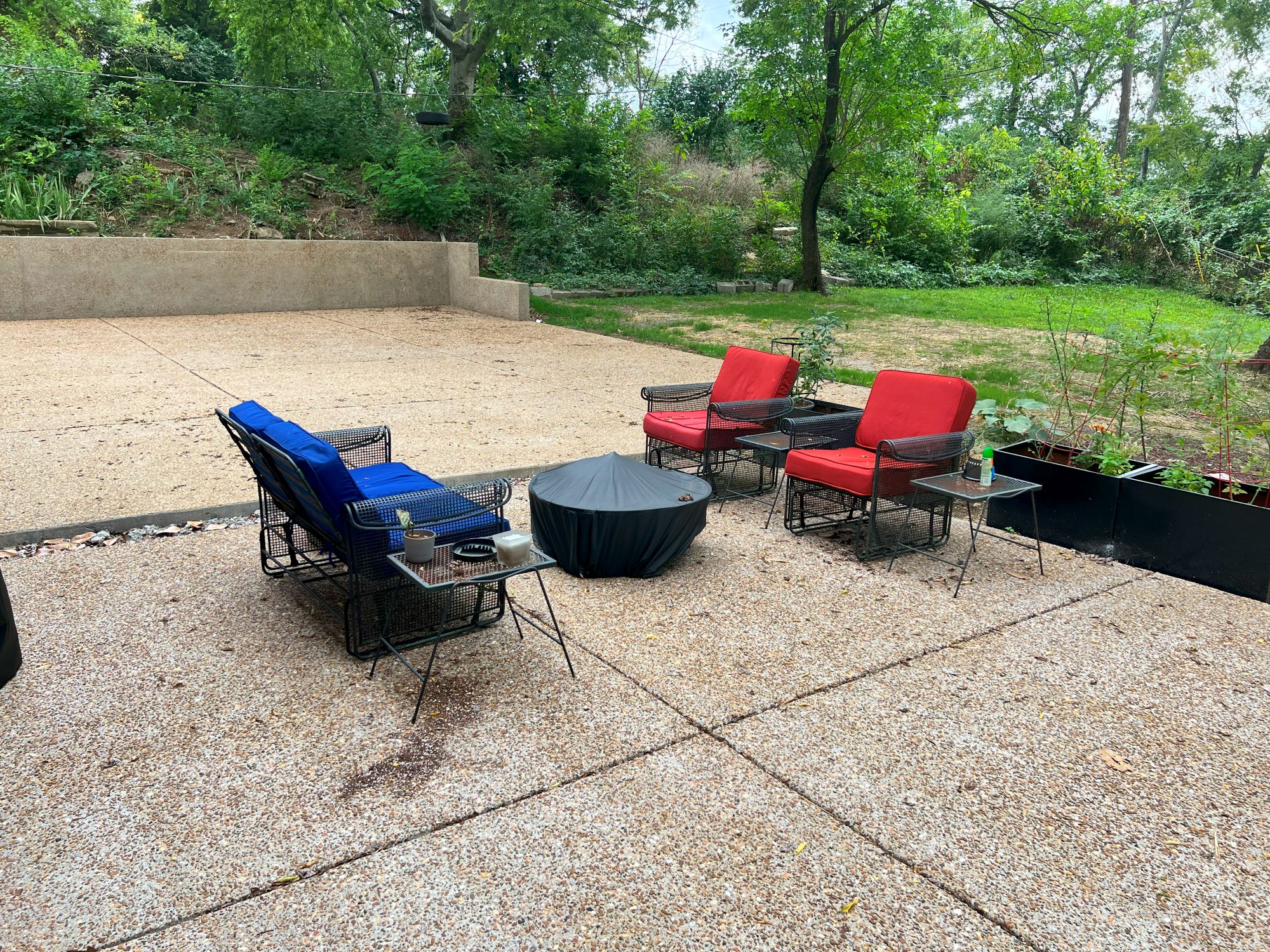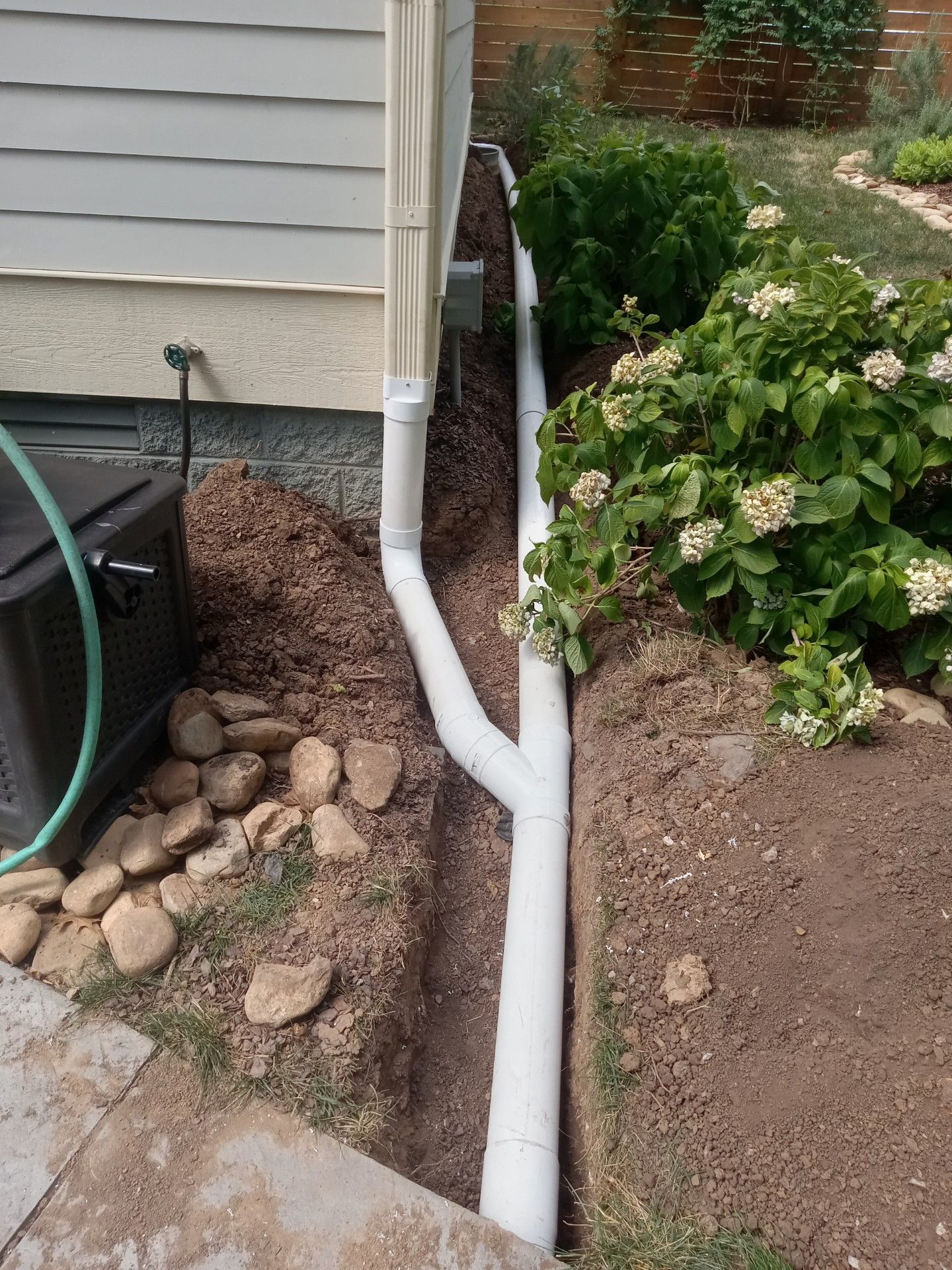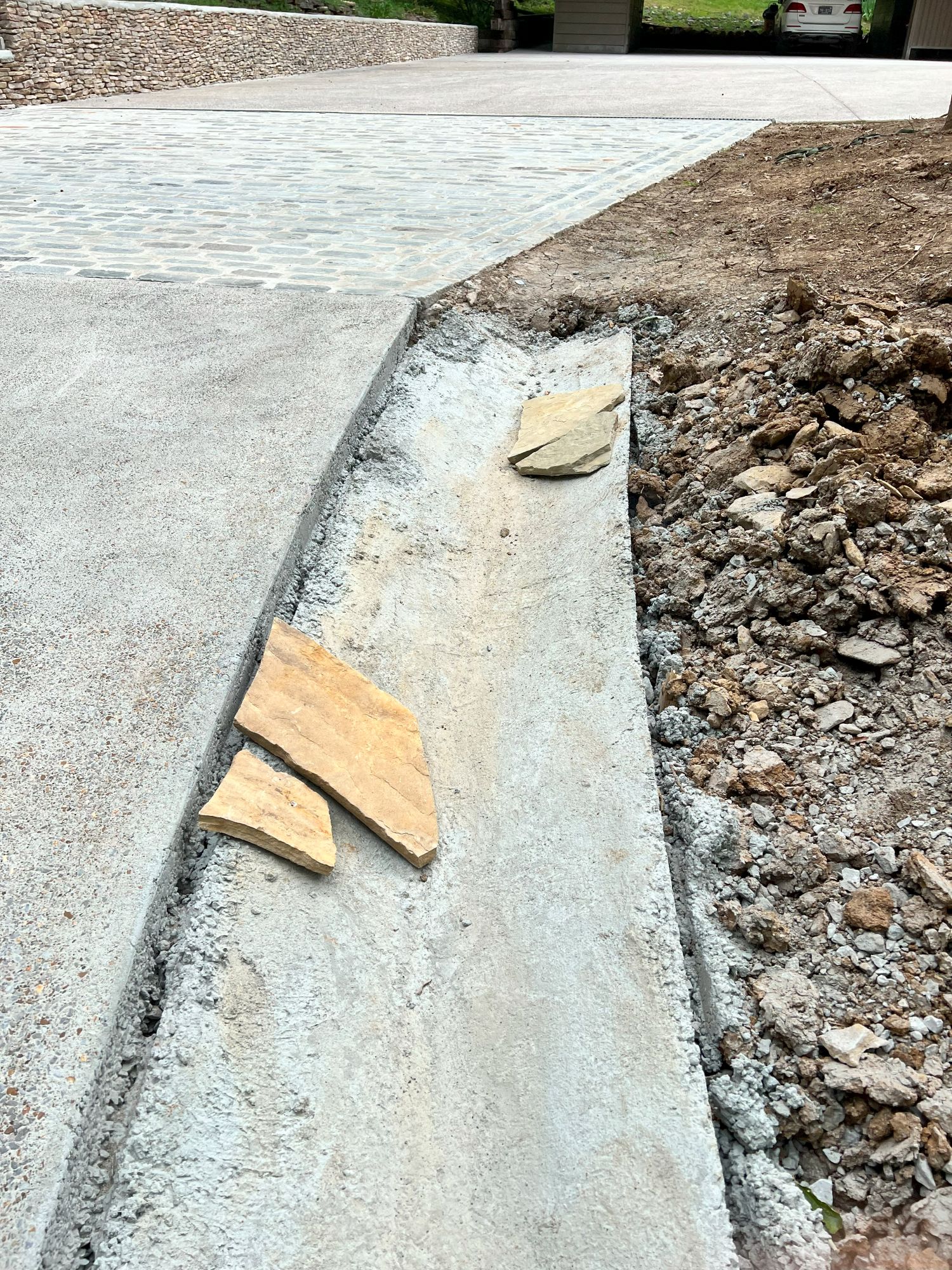When fall rolls into Nashville, homeowners often focus on cleaning up leaves and prepping gardens for cooler weather. However, autumn is also the perfect time to tackle one of the most impactful hardscaping projects you can invest in: building an engineered block retaining wall.
These walls do far more than enhance your yard’s look—they protect your property, manage soil and water, and can even boost your home’s value. Let’s define what engineered block retaining walls are, why they’re so beneficial for Nashville homeowners, and why fall is the ideal season to install one with Greenway’s help.
What Is an Engineered Block Retaining Wall?
A retaining wall is a structure designed to hold back soil, prevent erosion, and stabilize slopes in your landscape. While simple retaining walls can be built using various materials like timber or natural stone, engineered retaining wall blocks are specially designed concrete blocks that interlock for strength and stability. The engineered term can also refer to the need for an actual engineer to take part in the wall’s design to ensure its height, stability, and functionality will be both effective and safe. Unlike basic DIY walls, these structures should be planned and built according to engineering standards. This ensures they can handle the load of soil behind them, resist water pressure, and meet local building codes. You might be wondering, “how high can a retaining wall be before it needs to be engineered?” Generally, any wall over four feet high requires engineering. In Nashville and Davidson County, retaining walls that exceed four feet or support a significant load must meet strict structural guidelines.
Why Homeowners in Nashville Need Engineered Retaining Walls
Nashville’s hilly terrain and clay-heavy soil make proper grading and soil retention critical. Without a well-built wall, homeowners risk:
- Erosion Damage: Sloping yards are prone to soil washing away during storms. Say goodbye to your mulch, topsoil, flowers, and more.
- Foundation Problems: Poor drainage and shifting soil can undermine your home’s stability. Foundation damage leads to costly major repairs.
- Standing Water: Uneven landscapes trap water, creating mosquito habitats and damaging grass. It’s not just unsightly, but it’s obnoxious and potentially hazardous since mosquitoes may carry diseases.
An engineered block retaining wall eliminates these issues by providing:
- Structural Integrity: These walls are designed to withstand immense lateral pressure from soil and water, making them safer and longer-lasting than basic stacked stone or timber walls.
- Drainage Management: Proper drainage is integrated into the wall design, reducing hydrostatic pressure and keeping your yard dry. This is especially important for a retaining wall in Nashville, Tennessee, where rainfall is high.
- Versatile Design Options: Modern engineered retaining wall blocks come in multiple colors, textures, and finishes, so your wall can be functional and attractive.
- Increased Property Value: A well-built retaining wall improves curb appeal and prevents costly property damage, making it a smart investment for resale.
Why Fall Is the Best Time for Retaining Wall Installation
Most homeowners think about major landscaping projects in the spring, but fall is actually the ideal season for retaining wall installation. Here’s why:
- Optimal Soil Conditions: During fall, the ground is neither frozen nor excessively wet, creating the perfect environment for excavation and compaction, two crucial steps in building a stable wall.
- Reduced Landscaping Disruption: Plant growth slows down in fall, so installing a retaining wall now means less damage to your lawn and garden beds. By spring, your yard will be fully restored and ready to enjoy.
- Avoids Spring Scheduling Delays: Contractors are busiest in spring and summer. Scheduling in the fall ensures you secure top retaining wall contractors like Greenway without long wait times. By the time spring rolls around, your yard will be ready to go.
- Prepare for Winter and Next Year’s Rains: Retaining walls protect your property from water runoff during heavy rains or snow melt. Installing one in the fall means you’re ready for unpredictable winter storms and next year’s wet season.
The Process of Building Engineered Retaining Walls
Installing an engineered retaining wall is not a simple weekend project; it requires careful preparation and detailed work. First, you need an in-depth site assessment and design phase. Greenway evaluates your yard’s slope, soil type, drainage needs, and local code requirements. Our team calculates the necessary wall height, block type, and reinforcement methods to ensure optimal construction. This is part of the engineering process, accounting for all the variables that can make or break your wall’s success.
Once the appropriate permits are obtained, next comes the excavation and base preparation. A trench is dug for the base, and a layer of compacted gravel is installed to provide stability. After the area is prepared, the retaining wall blocks are stacked with precision. For taller walls, reinforcement and proper backfill layers are added to ensure stability. Drainage is a key factor with any retaining wall, and while the blocks account for this to a degree, some yards might need additional drainage integration. PVC pipe might be installed behind the wall to manage water pressure. Cap blocks are placed, and the area nearby is graded for a seamless look.
The Risks of DIY Retaining Walls
While it’s tempting to save money by stacking a few blocks yourself, DIY retaining walls often fail because they lack proper engineering, reinforcement, and drainage. Common problems include:
- Walls leaning or collapsing under soil pressure
- Poor drainage is causing water buildup and structural failure
- Uneven settling due to improper compaction
- Prolonged time required to complete the project
With Greenway, you avoid these pitfalls as well as avoid risking injury. Our experts ensure your wall is built to code, engineered for safety, and designed for beauty. When it comes to retaining walls in Nashville, Greenway sets the standard for excellence. Homeowners have trusted us for nearly two decades, and we’ve installed hundreds of engineered block walls across Middle Tennessee. We start with an on-site evaluation at your home, which generates a guaranteed quote for the service. You get transparent pricing with no surprises. Our materials are the best quality and are selected for their durability and weather-resistant design to ensure longevity. Greenway does all the paperwork, too! We handle any necessary permits, ensuring compliance with local codes and saving you from the frustration of municipal websites and forms. At the end, you get a retaining wall that’s as beautiful as it is functional, and will be a long-standing feature of your yard. Whether you’re battling erosion, improving your yard’s layout, or adding value to your property, Greenway delivers results you can trust.
Ready to Build Your Engineered Block Retaining Wall This Fall?
Don’t wait for heavy rains to cause damage to your property. Now is the best time to invest in a strong, stylish retaining wall that will protect your home for years to come. Get in touch with Greenway today for your free consultation and guaranteed quote on retaining wall installation near Nashville. You’ll never regret making your yard safer, more beautiful, and ready for every season to come.
